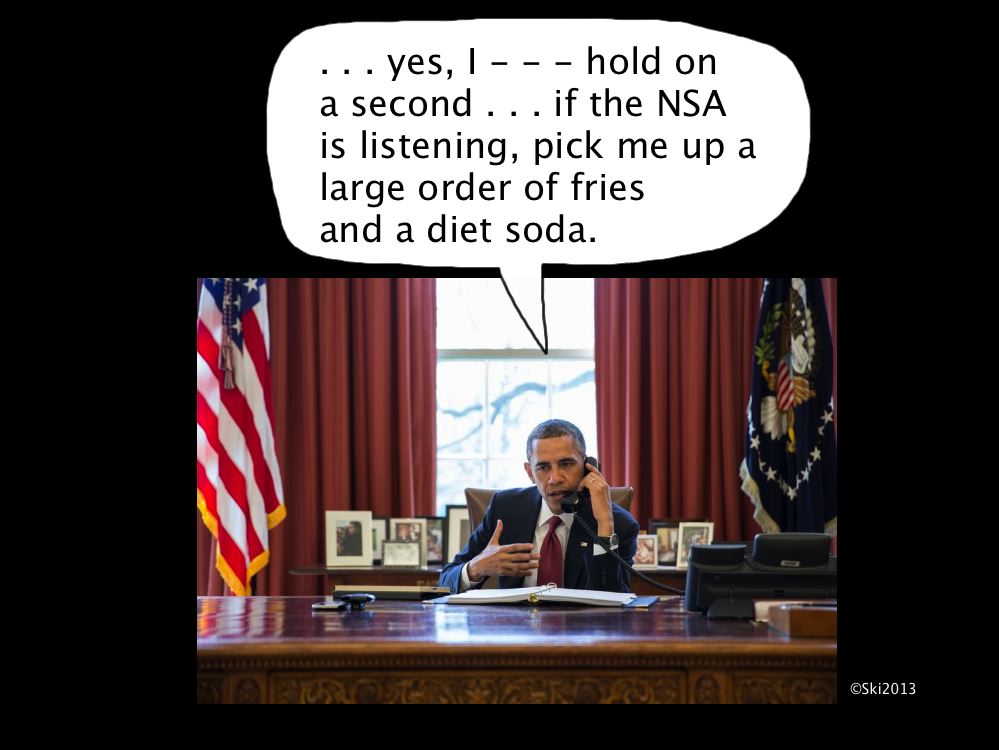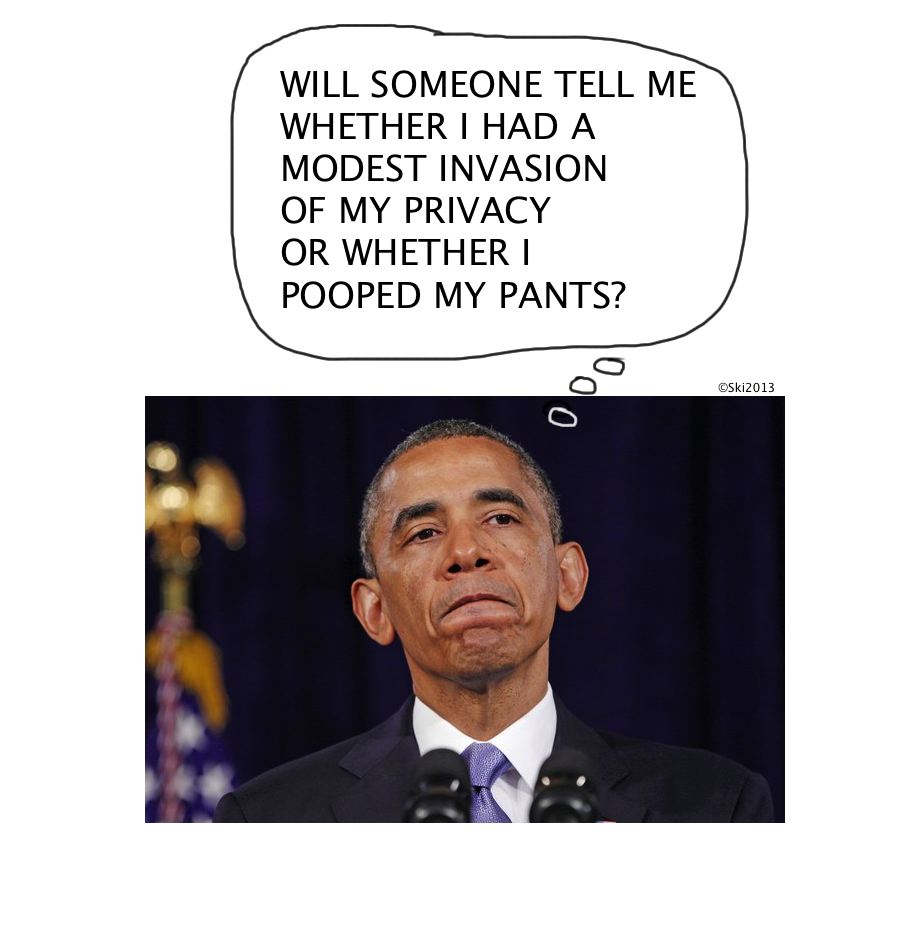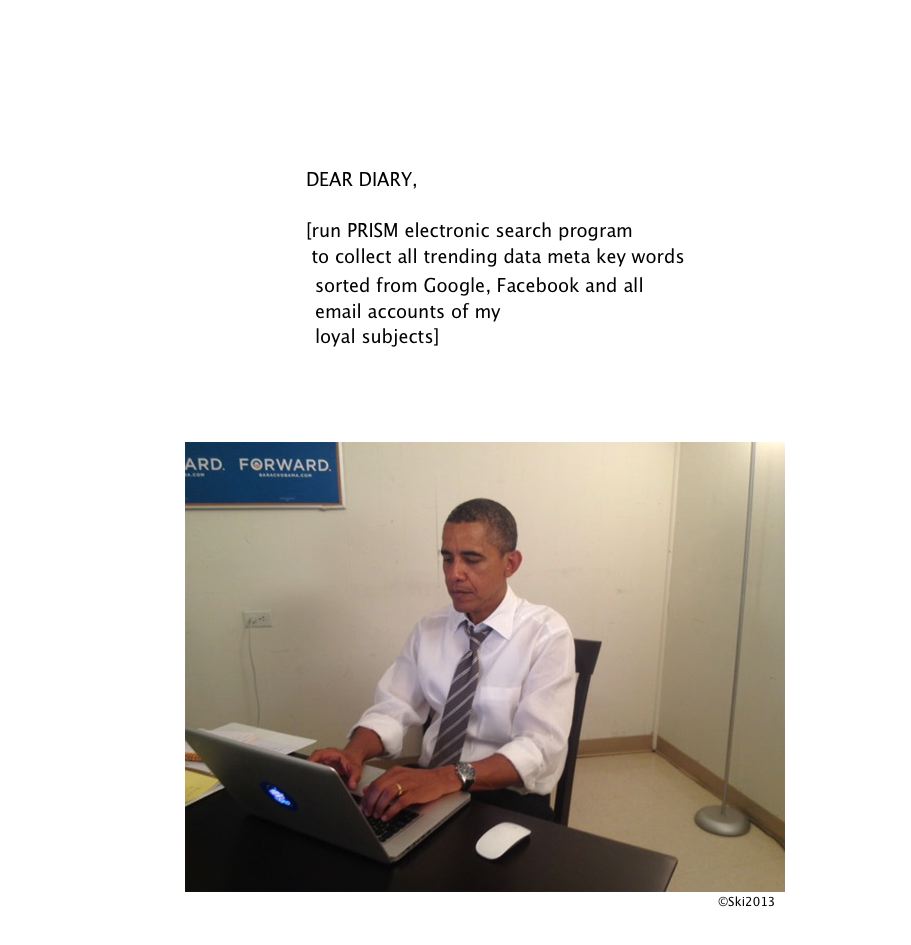|
SPIES
ON US
Many
people believe that the federal government is out of control. Weekly scandals
have dominated the headlines, from the IRS targeting non-for-profits,
HHS lobbying firms it will regulate to push Obamacare, the Justice Department
calling reporters criminals in order to wiretap their phone and computers,
and the NSA taking all telephone and internet data without probable cause.
In
the midst of these growing scandals, the President continues to be missing
in (in)action. The President can only have three positions on these matters:
he was unaware, he approved them or he does not care. It does not matter
whether he is the puppet or the puppeteer; these scandals continue to
grow in disturbing scale and size.
|
|
The
Fourth Amendment to the U.S. Constitution is quite clear:
The
right of the people to be secure in their persons, houses, papers and effects,
against unreasonable searches and seizures, shall not be violated, and no Warrants
shall issue, but upon probable cause, supported by an Oath or affirmation, and
particularly describing the place to be searched and persons or things to be
seized.
The
government, including the National Security Agency (NSA) shall not make unreasonable
searches or seizures of personal property without a Warrant issued under oath
and upon probable cause that a particular crime may have been committed by a
specific person or persons.
The
NSA used the Foreign Intelligence Surveillance Act (FISA) to go to a secret
court to get extremely broad warrants to collect ALL of the telephone company
records (The Guardian newspaper in the U.K. reported it was every Verizon telephone
call; others assume all teleco carriers received similar orders). The FISA grants
authority to agencies to use means for non-domestic spying. However, these orders
appear to be targeting ALL domestic phone records.
The
reasons for these broad orders are more suspect than the orders themselves.
First, it was justified by stating that there is a provision in the FISA for
the NSA to get “business records.” However, every record kept by a
company, partnership or individual is a “business record.” Further,
the Fourth Amendment does not provide a “business record exception”
to obtaining a specific search warrant. Second, it was justified by stating
that the NSA did receive a proper search warrant from the secret FISA court.
Critics charge that the judges on these secret courts merely rubber stamp requests.
The people being served these collection orders, such as Verizon, Google or
Apple, are under an immediate gag order not to reveal to their customers that
such a seizure order was granted to the government. In some legal circles, these
businesses are in a massive Catch-22: there are numerous state and federal privacy
laws which protect their customer data files from being copies or released to
third parties, and there is a Star Chamber enforcement order which cannot be
disclosed or effectively appealed to stop abuse. Third, it was justified by
stating that the NSA needs to gather and store all this information in order
to analyze “chatter” so as to map social networks to smoke out terrorist
activities. Besides, it is only the metadata being collected but those files
include phone numbers, GPS locations, movement data, length of calls and exchanges.
The NSA says that it obtains an actual search warrant when it needs to access
specific account holder information. Critics call the latter argument bogus.
If you have a suspect, you can get a constitutional search warrant on a specific
person or group and serve that warrant to the telecommunications company and
receive specific account records. This is standard police procedure. The collection
and storage of billions of telephone records is unreasonable overkill. Critics
believe such a massive data base could be corrupted, data mined and misused
by the government or its subcontractors at the expense of every citizen's personal
privacy rights. Fourth, the NSA says that this tool is needed to keep America
safe. It cites to 50 cases where the agency has stopped attacks on American
soil. Some local police dispute the NSA collection program had anything to do
with thwarting an planned attack on the NYSE after 9/11. In addition, critics
find the admitted “success rate” appalling - - - only 50 credible
information finds in collecting billions of daily telecommunication records
(or more than 3.65 trillion records since 9/11). Fifty divided by 3.65 trillion
is such a minute number one cannot justify that it is a successful means of
countering terrorism.
Some
people have no problem with the government viewing their personal records or
events. They claim they have nothing to hide. No harm, no foul. But civil libertarians
state that is not the standard for our constitutional democracy. The people
are innocent until proven guilty. Under the NSA program, all citizens are presumed
to be probable terrorists (since the constitutional standard is probable cause
in order to execute a warrant).
Others
try to parse the program on tangential technicalities. They claim that no one
should have any expectation of privacy when using a cellphone or logging onto
the Internet. All one's information is bounced around the telecom network and
stored on various ISP and web servers. People know (or should know) that their
ISP, social network hosts, search engine providers all data mine each person's
key strokes to obtain customer trends, likes, shopping habits to cull direct
marketing materials and advertising for business. They also claim that in order
to be able to secure persons from attacks, the people must give up some of their
privacy. But the founding fathers never adopted that alleged balancing act.
In fact, the constitution provides the opposite. It is ironic that those supporters
of the program cite security as the number one reason to protect citizens, is
the same group that is trying to limit individual gun ownership by citizens
provided by the Second Amendment.
But
the most chilling aspect of this domestic spying issue is what the intelligence
people avoiding saying in Congressional hearings. When asked specifically by
a Congressman whether the NSA had the capability to listen in to telephone calls
or read any American's email, the NSA representative answered, “No, we
do not have the authority to do that.” But that was not the question! The
answer was a classic misdirection - - - giving the Congressman the answer he
may be looking for ("No") but in a totally different context. The
NSA never answered the question whether it has the capability to spy on Americans
(apparently it does) but that it does not do so because “it does not have
the authority.” Some critics believe the NSA and the federal government
has no authority under FISA to do any domestic spying or intelligence gathering
against US citizens. The federal government and Justice Department merely pass
on that assertion.
The
FISA orders to collect all telephone network data and the PRISM program to obtain
and store copies of all internet communications is information hoarding at its
most extreme level. Yes, we live in an information age. Yes, people are more
and more dependent on the internet to conduct their business and maintain interpersonal
communications. Yes, people share among themselves information and tidbits about
themselves, but they do so voluntarily.
The
real issue is the potential abuse of personal information by government officials
or their crony friends. It could happen. It will happen. It is happening now.
The IRS injected bias, politics and obstructive techniques in reviewing not-for-profit
organizations prior to the election. Some political observers believe this conduct
had an adverse impact on the Romney campaign. Others believe that the IRS scandal
was the tip of the iceberg. Congressional oversight committees have heard testimony
that conservative groups and donors were systematically targeted by various
federal agencies because of their political beliefs. They received unnecessary
audits, OSHA inspections and investigations because they showed up on confidential
and private donor lists. There have been newspaper reports that confidential
IRS records were given to political groups to use during the campaign, which
in itself is a serious violation of the law. So there is a real concern that
the people may not trust their government with their personal private information.
Adding to the concern is the fact that the IRS will soon have access to everyone's
personal health care files (in order to enforce fines and penalties if you do
not have the “minimum” health care insurance coverage). There is no
stopping an government operative from misuing, manipulating or even changing
these collected data files in order to punish, prosecute or exploit any individual.
And
where is the leadership of the President on this major privacy and domestic
spying issue?



RETURN TO HOME PAGE



